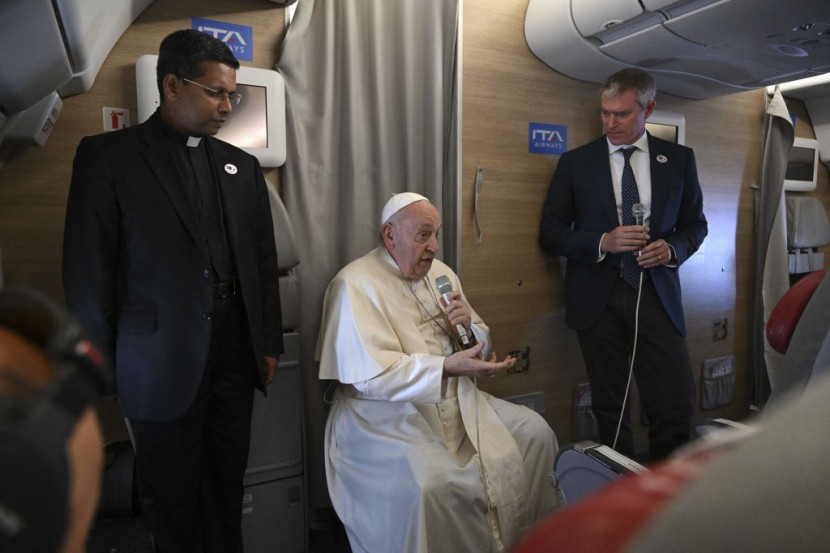
Days after Pope Francis delivered a speech to Russian Catholics, a minority in an Orthodox-dominated nation, he acknowledged Monday (September 4) that his comments about Russia's imperial past, a concept Ukraine has since criticized, were badly phrased.
In an impromptu in-flight press conference following the end of his visit to Mongolia, the first time any Roman pontiff has ever done so, Francis clarified that his intention was to remind young Russians of a great cultural heritage they had and not a political one.
"I was not thinking of imperialism when I said that," he said.
While Ukrainians have been disappointed with the pope's remarks, the Kremlin welcomed them by saying he has a knowledge of Russian history.
In response, Francis stated he was referring to the thought of one of his favorite authors, the Russian literary icon Fyodor Dostoevsky.
"Russian culture is of such beauty, such profoundness," he added. "It should not be canceled because of political problems. There were dark political years in Russia but the heritage is there, available to all"
Pope to Beijing: Catholic Church Not a Foreign Power
Francis also told reporters aboard the return flight to Rome that he wanted to assure China, which the Vatican has difficult relations with following the 2018 agreement between Rome and Beijing on the appointment of bishops and the dismissal of its main broker, Theodore McCarrick, from the church's hierarchy and clerical state due to sexual assault charges, that the Holy See has no ulterior motives against its regime and should not be seen as a foreign power despite the fact the pope is considered the elected sovereign of Vatican City.
"I think we have to move forward in the religious aspect in order to understand each other better, so that Chinese citizens do not think the Church does not accept their culture and their values and [do not think] that the Church represents another foreign power," the pontiff explained.
This remark came after a young Chinese Catholic man living in Inner Mongolia told the pope in the lead-up to the principal Mass in Ulaanbaatar Sunday (September 3) to help "save" the Chinese congregation as Beijing has been following a policy of "Sinicization" of religion, where all traces of foreign influence are purged and are replaced with the importance of obedience to the Chinese Communist Party.
Despite this, Francis said relations with Chinese officials were "very respectful" and that he had a "great admiration" for the Chinese people.
The pope also talked about the upcoming events he would attend, such as the Synod on Synodality in October, a trip to Marseilles, the latest consistory ceremony for 21 new cardinals, and a possible papal visit to Vietnam.








